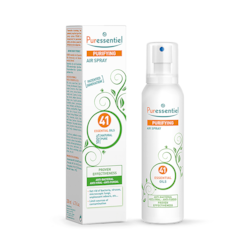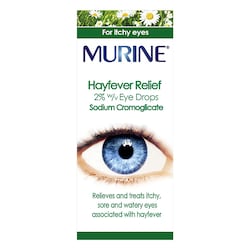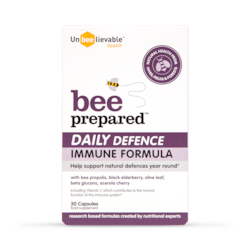20% off £30
Code:QUICK
What is an allergy and could I have one?

An allergy is the body’s overreaction to a substance it is exposed to, through eating, breathing or via skin contact, such as pollen, eggs, nuts or gluten.
One in four people in the UK are affected by allergies – and each year this number is rising – with as many as half being children. But what actually is an allergy?
What is an allergy?
We often talk about allergies without using the term correctly or knowing exactly what they are. An allergy is defined as the body’s overreaction to a substance it is exposed to, through eating, breathing or via skin contact.
What causes an allergy?
Typical substances – called allergens – that might trigger an allergy include pollen, eggs, nuts and gluten (a protein found in cereals such as wheat). In a non-allergic person, the body will not react to the allergen. But in the allergic person, the body’s immune system will overreact, creating antibodies. The antibodies remain in the body, ready to react if that person is exposed to the allergen again. This stage is called ‘sensitisation’ and the allergic person remains unaware they have an allergy.
The next time the allergic person comes into contact with the allergen the antibodies kick in and cells, including those in the skin, nose, eyes, mouth, throat and stomach produce chemicals including histamine It is not certain why some people have allergic reactions but more and more people are developing them each year. It is thought that allergies are a result of our immune systems being exposed to less germs due to cleaner, more sterile homes and surroundings. With less to protect us from, this may cause our immune systems to overreact when harmless substances like dust, pet dander or pollen enter our bodies.
What are the signs of an allergy?
The release of these chemicals in the body when an allergic person comes into contact with the allergen range from mild reactions such as sneezing, itchiness, inflammation, tummy ache, vomiting and diarrhoea – to more severe symptoms including swallowing difficulties, shortness of breath, a drop in blood pressure, chest pain and anaphylactic shock.
What is the difference between an allergy and an intolerance?
At first glance, allergies and intolerances may seem very similar, but these two conditions are actually quite different. We took a look at the symptoms of these two food-related reactions and how they can affect the body. The term ‘allergy’ originally covered any adverse reaction to an everyday substance, but now is used specifically to define allergic reactions produced by the immune system.
Those with food allergies need only a tiny amount of the food to which they are allergic to have a serious reaction. Although a food intolerance can cause discomfort and some problematic symptoms, the immune system is not involved. Reactions to intolerances normally take longer than allergies, with symptoms like diarrhoea taking hours or days to appear. Unlike allergies which are a reaction to even small amounts of food, most people with an intolerance are able to eat larger quantities of the problem causing food without any problems. Symptoms of intolerances can vary greatly for each person, and can take longer to diagnose. Joint pain, migraines and bloating are common symptoms with many sufferers often feeling generally unwell.
Who do allergies affect?
Allergies tend to affect children, people with a family history of allergies or those with linked conditions like asthma or eczema. Although they are most common in children, adults can also be affected. Some children may grow out of their allergies as they get older but a lot are affected all throughout their lives. On the other hand, some adults can also develop allergies later in life, becoming allergic to substances they previously had no reactions to.
Do I have an allergy?
If you think you have allergy or intolerance symptoms, go to your GP to be tested. Typically, a skin prick test or a blood test will be used. If an allergy or intolerance is diagnosed, this site will be able to help you with advice and information.



































